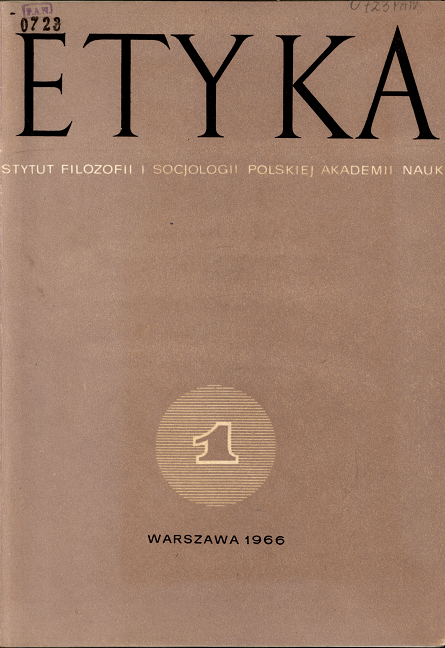Trzy stadia emotywistycznej teorii sporu etycznego
DOI:
https://doi.org/10.14394/etyka.204Abstract
The article presents three stages of the emotive theory of ethical disagreement. Paragraph 1 deals with problems of ethical disagreement in the first stage of emotivism (R. Carnap, B. Russell, A. Ayer). Paragraph 2 shows Stevenson’s theory of ethical disagreement. Paragraph 3 discusses P. Edward’s conception. Confronting the successive stages of the emotive theory of ethical disagreement, the author finds no changes to have taken place in the characteristic definition of ethical disagreement as a disagreement in attitudes. But the theory of the resolution of ethical disagreement undergoes considerable transformation. It is expressed mostly in the endeavour !to add precision to the concepts of justification for ethical judgements, and to the concept of settling of ethical disagreement. That is especially manifest in Edward’s conception. The author demonstrates that there is very little difference in Edward’s conception from Stevenson’s theory, but he at the same time points out the presence in that conception of trends new to emotivism, namely trends tending to find objective criteria for settling ethical disagreement. In conclusion it is stated that the essential line of development of the emotive theory of ethical disagreement undergoes no changes. What does change considerably is the tone of the statements – from the extreme radicalism of Ayer, from the striking, indeed drastic, formulations of Russell, to the pondered assertions of Stevenson and Edwards; from a nonchalant neglect of the subject of ethical disagreements, to their most conscientious and penetrating examination.Downloads
Downloads
Published
How to Cite
Issue
Section
License
Works published in ETYKA are available under the Creative Commons Attribution 4.0 International Licence (CC BY 4.0), which entails acknowledgement of authorship. Under this licence, Authors keep their copyrights and agree that their works can be used again legally for any purpose, including commercial ones, without the need to obtain previous consent of the Author or publisher. The articles can be downloaded, printed, copied and disseminated; under the condition that the authorship is indicated accordingly, together with the place of original publication. The Authors preserve their copyrights to the above-mentioned works without any limitation whatsoever.



